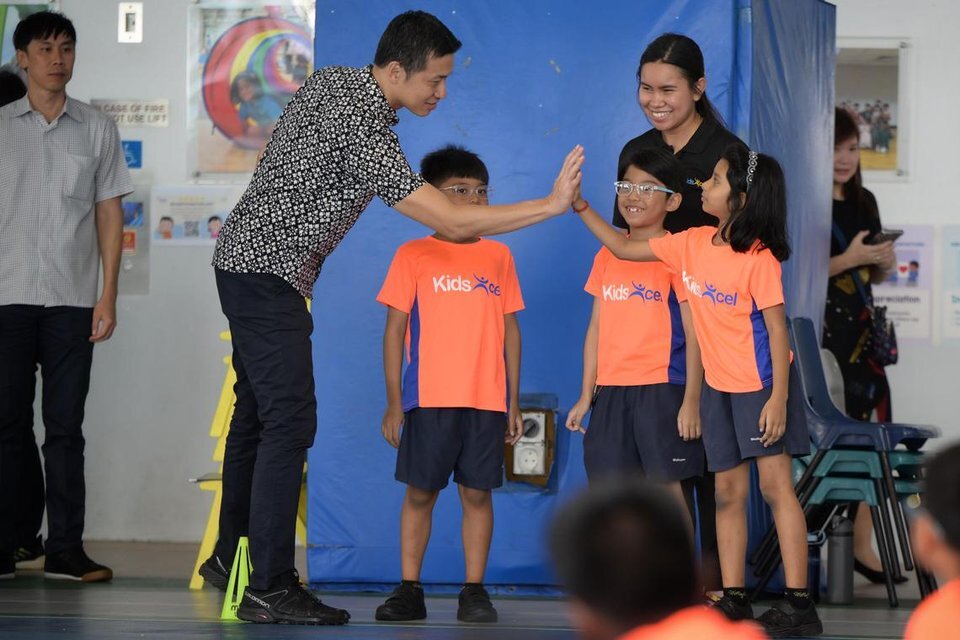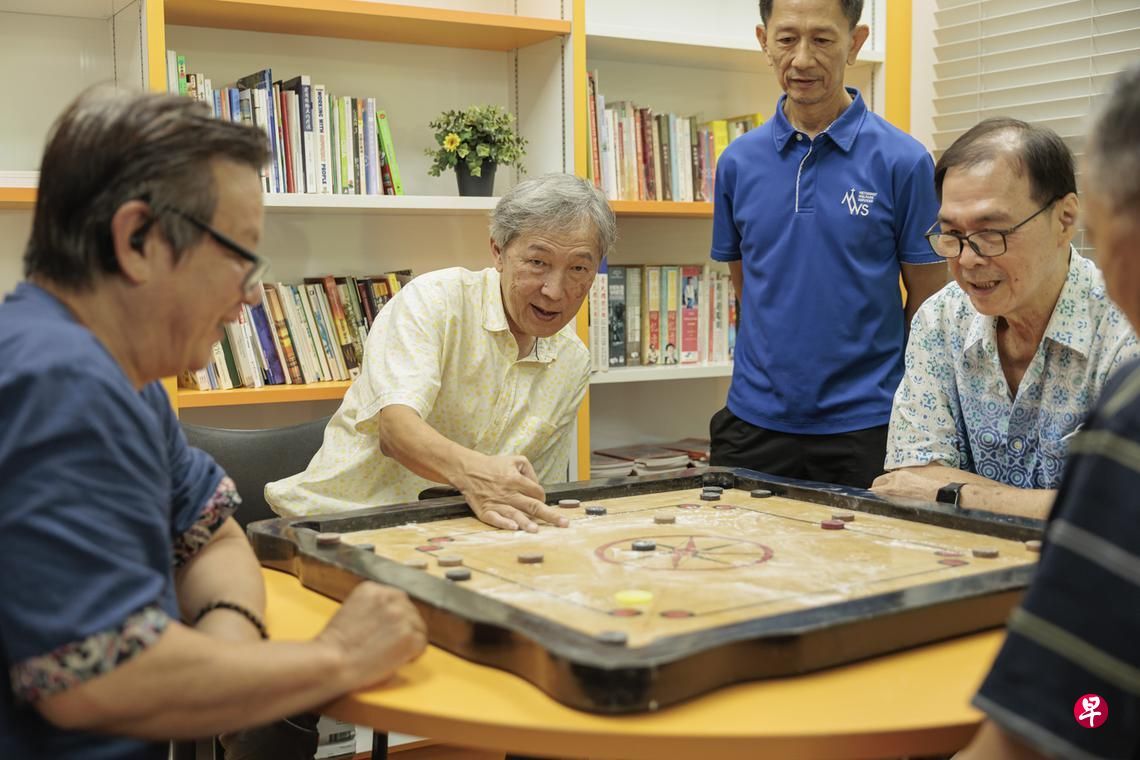Donations to CFS increased by 60% over the past two years


Over two years, the number of Donor-Advised Funds (DAFs) managed by the Community Foundation of Singapore (CFS) has increased from 162 to 235, and total donations received since inception has risen from $192 million to $311 million. As of 31 December 2023, CFS has disbursed over $169 million in grants, a big jump from the $114 million disbursed as of 31 March 2021.
Speaking to Zaobao, CEO Ms Catherine Loh, shared that one reason for the significant increase in donations was due to a few large donations exceeding $10 million over the past three years. She also highlighted the introduction of Legacy Giving by CFS, and the organisation’s efforts to work more closely with financial and legal advisors to promote philanthropy. Notably, about 15% of CFS’s DAFs are memorial in nature, including the recently established Adrian Tan Memorial Fund in 2023.
Learn more about our DAFs at https://cf.org.sg/donors/donor-advised-funds/.
过去两年多,新加坡社区基金会管理的慈善基金从162个增至235个,善款从1亿9200万元提高到3亿1100万元,增约六成,显示国人对慈善的意识不断提高。
截至2023年12月31日,新加坡社区基金会(The Community Foundation of Singapore,简称基金会)发放的善款超过1亿6900万元,比截至2021年3月31日的超过1亿1400万元多,造福更多人。
新加坡社区基金会总裁罗佩仪答复《联合早报》询问时说,过去三年,基金会接到几个超过1000万元的慈善基金,这是善款增加的其中原因。
另一原因是因为基金会积极推广遗赠项目,并且与财务专员和律师更紧密合作,让更多人认识基金项目,所以取得积极成效。
基金会在2008年成立,通过可持续、妥善和具透明度的方式,协助个人、家庭或企业设立或管理慈善基金。
捐款者能以自己、家人或公司名义设立基金,或为逝者设立基金。遗赠可包括现金、提名基金会为受益人的保险赔付或公积金存款,以及有价证券或房地产等。
捐赠者可指定受惠者,基金会将与相关慈善团体配对,制定有效的行善策略。
基金会与超过400个慈善伙伴合作,协助对象广泛,包括孩童、年长者、客工或社会边缘人,援助范围包括医疗、教育、艺术和动物福利等。
罗佩仪说,基金会管理的“捐献者指示基金”(Donor Advised Funds)分三类,一种是捐赠基金(Endowment fund),慈善资产将永久保存在社区基金会并进行投资,投资收益直接用在所选择支持的慈善机构和项目。
第二种属于流转基金(Flow-Through Fund),在特定时期内支持个人选定、所喜爱的慈善机构和项目,占总指示基金约75%。另一种是可投资流转基金(Investible Flow-Through Fund),捐款用于投资,投资回报和本金都可用于个人选择的慈善事业。
捐献者指示基金 目前最大款项超过2000万元
在捐献者指示基金中,目前款项最大的超过2000万元,而总指示基金也有约15%属于纪念性质的基金,包括去年设立的陈锦海纪念基金。
她说,陈锦海纪念基金是陈锦海妻子为了向亡夫致敬,并支持他生前热衷的慈善事业而设的。
“纪念基金是缅怀亲人的绝佳方式。我们当中的许多人都是读陈锦海的书长大的,很荣幸能与陈太太合作向他致敬。陈锦海纪念基金确保他的遗赠得以延续,支持他生前关心的公益事业。”
罗佩仪也指出,可投资流转基金是一种新的基金类型,“我们看到捐助者的需求不断增加,他们希望利用捐款投资获取回报,并灵活使用捐款和投资回报,支持所选择的慈善机构。”
已故前总统纳丹生前设立“纳丹教育提升基金”
已故前总统纳丹于2011年卸下总统职务时,通过社区基金会,以他的名义设立“纳丹教育提升基金”。
属于捐赠基金的纳丹教育提升基金,两年多前累积逾1000万元资金。
纳丹生前委任一个拨款咨询委员会,负责就基金可支持的项目提供建议,通过助学金、奖学金,以及各项经济援助计划,支持工艺教育局以下工艺教育学院和高等教育学府的贫困学生顺利升学。纳丹2016年逝世,享年92岁。
信用:联合早报©新报业媒体有限公司。复制需要许可
This article was originally published in Zaobao here. Source: Zaobao © SPH Media Limited. Permission required for reproduction.
Over two years, the number of Donor-Advised Funds (DAFs) managed by the Community Foundation of Singapore (CFS) has increased from 162 to 235, and total donations received since inception has risen from $192 million to $311 million. As of 31 December 2023, CFS has disbursed over $169 million in grants, a big jump from the $114 million disbursed as of 31 March 2021.
Speaking to Zaobao, CEO Ms Catherine Loh, shared that one reason for the significant increase in donations was due to a few large donations exceeding $10 million over the past three years. She also highlighted the introduction of Legacy Giving by CFS, and the organisation’s efforts to work more closely with financial and legal advisors to promote philanthropy. Notably, about 15% of CFS’s DAFs are memorial in nature, including the recently established Adrian Tan Memorial Fund in 2023.
Learn more about our DAFs at https://cf.org.sg/donors/donor-advised-funds/.
过去两年多,新加坡社区基金会管理的慈善基金从162个增至235个,善款从1亿9200万元提高到3亿1100万元,增约六成,显示国人对慈善的意识不断提高。
截至2023年12月31日,新加坡社区基金会(The Community Foundation of Singapore,简称基金会)发放的善款超过1亿6900万元,比截至2021年3月31日的超过1亿1400万元多,造福更多人。
新加坡社区基金会总裁罗佩仪答复《联合早报》询问时说,过去三年,基金会接到几个超过1000万元的慈善基金,这是善款增加的其中原因。
另一原因是因为基金会积极推广遗赠项目,并且与财务专员和律师更紧密合作,让更多人认识基金项目,所以取得积极成效。
基金会在2008年成立,通过可持续、妥善和具透明度的方式,协助个人、家庭或企业设立或管理慈善基金。
捐款者能以自己、家人或公司名义设立基金,或为逝者设立基金。遗赠可包括现金、提名基金会为受益人的保险赔付或公积金存款,以及有价证券或房地产等。
捐赠者可指定受惠者,基金会将与相关慈善团体配对,制定有效的行善策略。
基金会与超过400个慈善伙伴合作,协助对象广泛,包括孩童、年长者、客工或社会边缘人,援助范围包括医疗、教育、艺术和动物福利等。
罗佩仪说,基金会管理的“捐献者指示基金”(Donor Advised Funds)分三类,一种是捐赠基金(Endowment fund),慈善资产将永久保存在社区基金会并进行投资,投资收益直接用在所选择支持的慈善机构和项目。
第二种属于流转基金(Flow-Through Fund),在特定时期内支持个人选定、所喜爱的慈善机构和项目,占总指示基金约75%。另一种是可投资流转基金(Investible Flow-Through Fund),捐款用于投资,投资回报和本金都可用于个人选择的慈善事业。
捐献者指示基金 目前最大款项超过2000万元
在捐献者指示基金中,目前款项最大的超过2000万元,而总指示基金也有约15%属于纪念性质的基金,包括去年设立的陈锦海纪念基金。
她说,陈锦海纪念基金是陈锦海妻子为了向亡夫致敬,并支持他生前热衷的慈善事业而设的。
“纪念基金是缅怀亲人的绝佳方式。我们当中的许多人都是读陈锦海的书长大的,很荣幸能与陈太太合作向他致敬。陈锦海纪念基金确保他的遗赠得以延续,支持他生前关心的公益事业。”
罗佩仪也指出,可投资流转基金是一种新的基金类型,“我们看到捐助者的需求不断增加,他们希望利用捐款投资获取回报,并灵活使用捐款和投资回报,支持所选择的慈善机构。”
已故前总统纳丹生前设立“纳丹教育提升基金”
已故前总统纳丹于2011年卸下总统职务时,通过社区基金会,以他的名义设立“纳丹教育提升基金”。
属于捐赠基金的纳丹教育提升基金,两年多前累积逾1000万元资金。
纳丹生前委任一个拨款咨询委员会,负责就基金可支持的项目提供建议,通过助学金、奖学金,以及各项经济援助计划,支持工艺教育局以下工艺教育学院和高等教育学府的贫困学生顺利升学。纳丹2016年逝世,享年92岁。
信用:联合早报©新报业媒体有限公司。复制需要许可
This article was originally published in Zaobao here. Source: Zaobao © SPH Media Limited. Permission required for reproduction.
- Related Topics For You: ACCESSING QUALITY EDUCATION, ADVISOR STORIES, DONOR STORIES, DONOR-ADVISED FUND, LEGACY GIVING, NEWS, STORIES OF IMPACT
.jpg)


